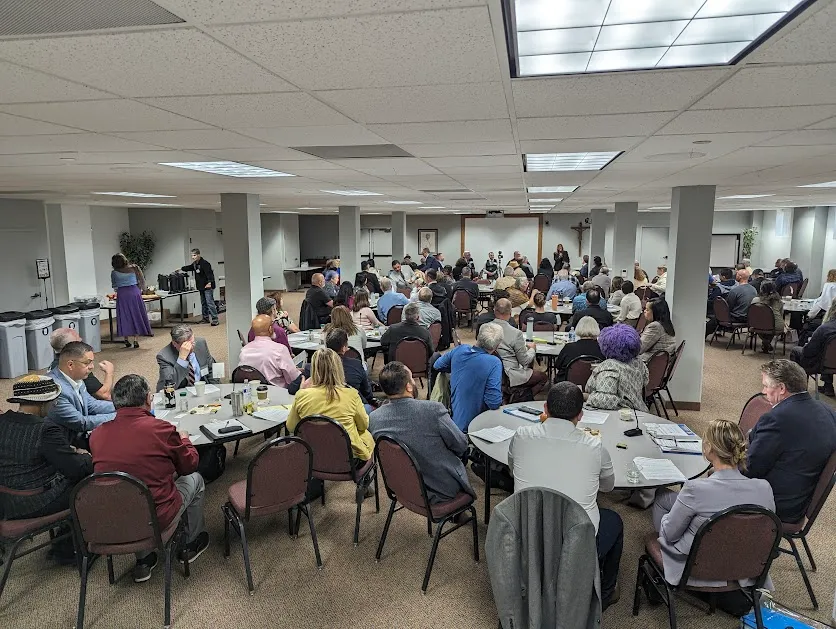Capitalism and its followers have failed to spread democracy throughout the world. In fact, capitalism has shown dictators, communists, and autocrats how to use money to control nations and keep people in poverty, even while befriending poorer nations to control their natural resources.
People say what people want to hear, but how many of us combine our faith with our deeds? Are we acting like hypocrites or following Christian values? Are your elected officials, business leaders, community leaders, and church leaders practicing what they preach? Do their actions support their faith? Through your actions, can people say that you are a Christian?
Americans running for political office and elected officials talk about their religious beliefs and values. They say what people want to hear but often fail to deliver on Christian principles designed to help individuals, communities, and nations. Did you know that helping the worker does not have to be counter to supporting management or ownership? That supporting the poor does not have to equate to an attack on the wealthy? That improving education opportunities for all should be a mandate, not a goal? In his landmark encyclical “Laudato Si,” Pope Francis says that “access to safe drinkable water is a basic and universal human right since it is essential to human survival and, as such, is a condition for the exercise of other human rights.” Why is it that hundreds of millions of people still do not have access to safe, drinkable water?
The COVID-19 pandemic put a focus on the healthcare disparities in America and abroad. This, combined with the difference in lifespan by country and continent, leads one to wonder whether there are alternative approaches to today’s capitalistic business and political principles. Has the time come to teach principles of Catholic social teaching (CST) as an alternative to spreading capitalistic principles and practices?
CST includes the following seven principles:
- Life and Dignity of the Human Person
- Call to Family, Community, and Participation
- Rights and Responsibilities
- Options for the Poor and Vulnerable
- Dignity of Work and Rights of Workers
- Solidarity
- Stewardship of Creation
Could these principles lead to a better America or a better world? If we Christians challenge corporations and governments to adhere to these principles on a global scale, maybe the world would become a healthier place. Workers would be paid fair wages and work under safe working conditions. Owners would continue to profit, but maybe not as much as they do today, and the "win-win" scenario would expand to a greater percentage of the world's population.
If governments would work together on mutually beneficial infrastructure projects, trade across nations and continents would grow. During my travels to Africa, I see signs of Chinese corporations building airport terminals, bridges, and toll roads. The cost to these countries in the short term probably seems reasonable, but if they default, the consequences could be grave as they may be required to put up access to natural resources as collateral.
Christians must take a bold stance and force change through the combined economic might that we possess on a global basis. We should stop exploiting nations! Together, we can wipe out extreme poverty across the globe without targeting billionaires and the wealthiest individuals to pay the entire cost. Fairness in business and labor practices is the first step. Investments in global infrastructure projects is second. Training millions of healthcare workers across the globe is third. Discussing family planning and the underlying rationale—taking economics into consideration—is fourth. Taking steps to protect the environment and provide access to clean drinking water to all is fifth. Dozens more steps come to mind, but for the sake of brevity, I’ll let you think up your own.
I'm trying to provoke discussions that lead away from the status quo and toward a world where people recognize that we have a shared interest in treating all people as we want to be treated. We must stop punishing people because of the neighborhood or nation where they were born or live. We must help people thrive wherever they live, even if it means corporations, stockholders, and investors make less money.
When will we acknowledge that all we have done over the past 30 years is ship jobs and wealth to China and other nations at the expense of the American worker and the U.S. tax base? Our policies have been detrimental to America and to Christians throughout the world as we have failed to live up to high moral and ethical standards, destroyed the environment, and turned a blind eye to human trafficking and the exploitation of the poor. Maybe we should help grow the economies of other countries and create jobs for people who live in democratic or Christian countries. I'm certain that there are such nations that would appreciate infrastructure investments and job creation projects and additional factory jobs.
If China has created as many billionaires as any other country (except the United States), is the country truly a communist country? Moreover, if we have helped create billionaires in China, wouldn't it make sense to move production to other countries and make people wealthy who share our Christian beliefs? Business owners in other countries might pay decent wages and develop a middle class rather than keep all the money for themselves. I guess we could bring the jobs home and do the same thing. I'm sure factories could be opened in the Americas and pay decent wages while still making a profit. When will we put the worker first? We might alleviate our illegal immigration problem in the process.
Christians must put biblical principles first if the world is going to address its problems and thrive. If we continue to focus on our self-interests and our differences, the world will not become what God intended. If we continue to discriminate against and take advantage of countries due to their poverty, we will make the world a worse place.
Also consider this: If communist and autocratic nations lead in providing humanitarian aid and developmental assistance to third-world countries, those countries may depart from their Christian roots. As a so-called Christian nation, we must remember that foreign aid helps to show Christians and non-believers that God has not forgotten them, even though they may be living in extreme poverty.
Western nations have the knowledge, resources, and abilities to elevate developing nations to a level of economic security where all people have the basics. When the desire to be good Christians catches up with our abilities, the world will truly become a more godly—that is to say, a more just—place.
It is not easy being a Christian one hundred percent of the time, and fortunately, God does not expect us to be perfect. Effort counts with God, however, even when implementation falls short. If we try with a sincere heart to turn the tide of injustice, we will succeed.
Ronald E. Smith, Ed.D is a lifelong Catholic who enjoys writing. He is a Rotarian and a parishioner at St. Edward the Confessor Church in Dana Point, California and St. Paul’s Catholic Church in Rubuguri, Uganda. He and his wife Sandy recently founded Friends of St. Kizito Rubuguri Primary School in Rubuguri, Uganda, where they serve as missionaries. He can be reached at resmithinc@aol.com.










